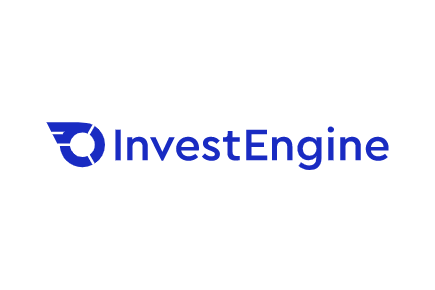
There can be a great deal of confusion over the difference between ISAs and bonds. That’s why it’s important to know how the two compare and what they can each offer your portfolio. In this article, you’ll find everything you need to know to help you decide the winner in the battle of ISA vs bonds. Find out the differences between the two, as well as some of the investment products you might want to consider.
If you want even more information on investing in an ISA, check out my best Stocks and Shares ISAs guide.
Key Takeaways
- The main difference between bonds and ISAs is that a bond is a type of asset, whereas an ISA is a type of account.
- Bonds are loans you make to a company or government in return for regular interest payments.
- Meanwhile, an ISA is a type of account in which you can hold your money. You can hold cash in an ISA, or invest in various kinds of assets through it.
If you are looking for a low-cost, simple way to invest, then look no further than InvestEngine. Here, you can invest in a choice of 500+ ETFs for as little as £1.
Exchange Traded Funds (ETFs) are actually a lot simpler than they sound. They are merely a mix of assets, including commodities and shares, that aim to track the performance of a stock market. They make investing a breeze and are diversified, which can help reduce your risk.
What I like about the InvestEngine Stocks and Shares ISA
With no setup fees or ISA fees to contend with, InvestEngine is one of the cheapest ways to invest in the stock market via a Stocks and Shares ISA. At InvestEngine, you can build your own portfolio or leave it to their experts for a more hands-off approach.
The InvestEngine Stocks and Shares ISA also comes with some great automation tools, including Auto Invest and Smart Portfolio top-ups so you can sit back and relax while your money is put to work for you.
Fees: 0.25% platform fee for managed portfolios, £0 DIY portfolio
Minimum balance: £100
Products available: S&S ISA, Personal Account, Business Account
Pros
- Lowest cost platform available
- Excellent customer service
- Suitable for all levels of experience
Cons
- No direct share dealing
- No SIPP product
- No ethical investment options
With investment, your capital is at risk. This could mean the value of your investments goes down as well as up.
What is an ISA?
An ISA, standing for “Individual Savings Account”, is a type of account that you can use to save or grow your money through investment.
The most well-known benefit of ISAs is their tax treatment. ISAs are famously tax-efficient as any interest you receive or any returns your investments generate are entirely free from Income Tax and Capital Gains Tax (CGT).
Bear in mind that ISAs are considered to be “tax-efficient” rather than “tax-free” as they may form part of your estate, and therefore may be subject to Inheritance Tax (IHT).
The ISA allowance
Each financial year, you can only contribute a certain amount into your ISAs. This limit is known as the “ISA allowance”.
In the 2021/22 tax year, the ISA allowance is £20,000. You cannot contribute more than this amount into your ISAs in a single tax year.
Types of ISAs
There are various different types of ISA that you might consider using for your saving and investing. You can choose to spread your ISA allowance across all your ISAs, or use it all in one – it’s entirely up to you.
Below are the two most common types of ISA:
Cash ISA
Cash ISAs are a type of savings account where you can hold your wealth in cash in return for regular interest payments.
Much like other savings accounts, interest rates vary across Cash ISAs so you’ll need to find the best one for you.
Just as there are fixed-rate savings accounts, there are also fixed-rate Cash ISAs. In a fixed-rate ISA, you’ll generally be required to hold money in the account for a set period in return for a higher interest rate.
Of course, bear in mind that you won’t be able to make withdrawals from fixed-rate ISAs as easily as you can from an easy-access account.
Alternatively, some ISAs are easy-access accounts that allow you to dip in and out freely – provided that you don’t exceed the ISA allowance.
Interest on regular savings accounts isn’t necessarily tax-free
You may think you’ll never have to pay tax on any savings interest earned. But actually, interest is only tax-free up to your Personal Savings Allowance. Basic-rate taxpayers have a Personal Savings Allowance of up to £1,000, falling to £500 for higher-rate taxpayers, and £0 for additional-rate taxpayers.
So, if you hold a lot of cash in savings accounts, you may end up paying tax on it. Meanwhile, using a Cash ISA for your savings means you’ll never have to worry about paying Income Tax on any interest your savings generate.
Stocks and Shares ISA
Stocks and Shares ISAs, also known as an “investment ISA”, allow you to grow your wealth through investing in the stock market within the ISA “wrapper”.
Any returns generated on investments held in this type of ISA are entirely free from Income Tax and CGT. Bear in mind that just because your money is invested doesn’t mean you’re guaranteed growth on it.
You’ll need to find a broker or trading platform to open this type of ISA.
Make sure you choose a broker that’s authorised and regulated by the Financial Conduct Authority (FCA). You can find out whether your broker is regulated by checking the Financial Services Register on the FCA website.
Other types of ISAs
As well as the main two types of ISA, there are also other, more specialised kinds.
- Lifetime ISAs (LISAs) – an account specifically for 18 to 40-year-olds to save for a first home or towards retirement. LISAs have a separate annual allowance of £4,000, and you’ll receive an additional 25% government bonus on every contribution to the account. LISAs also have strict withdrawal rules if you don’t use them for the intended purpose of first-home buying or retirement.
- Innovative Finance ISAs – an account that allows you to make loans to individuals or businesses who want to borrow. Bear in mind that this kind of account tends to come with more risk.
- Junior ISAs (JISAs) – an account that allows you to save or invest in the name of a child. JISAs have a separate ISA allowance, which for the 2021/22 tax year is £9,000. There are both Cash or Stocks and Shares JISAs.
What are bonds?
Bonds are a type of asset in which you lend your money to a borrower (usually a company or a government) in return for fixed interest payments until the maturity date of the bond.
In theory, bonds provide guaranteed returns while they’re active. Of course, the risk to you is that the borrower becomes unable to make payments and thus fails to fully repay your loan and the interest back to you.
Selling bonds on a secondary market
Alternatively, rather than holding your bonds and receiving your interest, you could try to sell them for a lump sum on a secondary market before the maturity date.
Of course, by doing this, you won’t receive interest payments.
Types of bond
There are many types of bonds available for you to consider. Here are two of the most popular types:
Fixed-rate bond
Fixed-rate bonds involve lending money to a company in return for interest paid at a guaranteed rate. Lending money by buying fixed-rate bonds can be a good way to add a steady income stream to your portfolio, provided the entity you lend to is able to keep up the repayments.
You can purchase corporate fixed-rate bonds, in which you lend to a private company. These can provide a healthy return if the company is successful and performs well. Of course, if the company collapses, you may lose your entire investment.
Alternatively, you can purchase government bonds, also known as “gilts”. Typically, gilts will pay you a lower interest rate. Even so, the upside is that it would require the entire government to collapse for you not to receive your money.
Premium bond
Premium bonds are a product offered by National Savings and Investments (NS&I).
When buying premium bonds, you lend your money to HM Treasury. However, rather than receiving interest on your money, you’re instead entered into a monthly prize draw in which you can win tax-free prizes of up to £1 million.
There are no guaranteed returns with premium bonds, but they can be an effective way to tax-efficiently save your money, while still maintaining an opportunity to earn more on it.
Premium bonds require a minimum investment of just £25 and allow you to invest up to £50,000.
So which is best: ISAs or bonds?
Overall, there’s no answer to whether ISAs or bonds are best for you because it will largely depend on your individual circumstances.
ISAs are a useful way to grow your money through saving or investments. Meanwhile, bonds can be a useful asset that can provide regular income to your portfolio.
Of course, nothing stops you from making the most of both. You can even hold bonds within an ISA to make sure any returns are free from tax.
If you’re truly unsure whether an ISA or bonds are the right choices for your money, seek professional advice.
ISA vs Bonds FAQs
Is an ISA an investment bond?
Can I have an ISA and bonds?
Please note
The value of your investments (and any income from them) can go down as well as up and you may not get back the full amount you invested. Past performance is not a reliable indicator of future performance. Investments should be considered over the longer term and should fit in with your overall attitude to risk and financial circumstances.
This article is for information only and does not constitute financial advice. Please do not act based on anything you might read in this article. All contents are based on our understanding of HMRC legislation, which is subject to change.

